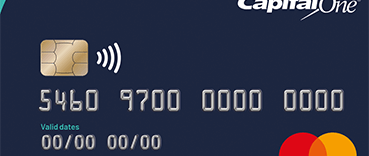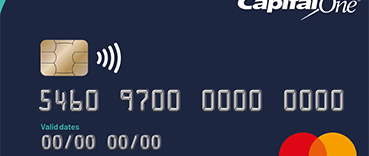 The treatment of cryptocurrency under UK tax rules can be confusing, but HMRC has recently published guidance explaining what types of tax cryptocurrency is subject to, how much tax you can expect to pay, and when you do not need to pay any tax on your assets at all. However, the government has warned that the legislation is constantly evolving as the crypto sector grows in size and stake, so be sure to check back regularly to see if there are any changes which may affect your tax treatment.
The treatment of cryptocurrency under UK tax rules can be confusing, but HMRC has recently published guidance explaining what types of tax cryptocurrency is subject to, how much tax you can expect to pay, and when you do not need to pay any tax on your assets at all. However, the government has warned that the legislation is constantly evolving as the crypto sector grows in size and stake, so be sure to check back regularly to see if there are any changes which may affect your tax treatment.
With an estimated 11% of Brits owning cryptocurrency as of February 2024, understanding how tax is applied to crypto assets in the UK is becoming increasingly important. In this article, we explain which taxes apply to cryptocurrency, how much you may be expected to pay, and how to go about paying what you owe.
Is cryptocurrency taxable in the UK?
Yes, cryptocurrency is subject to tax in the UK. Anyone who lives in the UK and holds crypto assets – such as bitcoin or other cryptocurrencies – is taxed on the profits they make from them, but only when they exceed the annual tax-free allowance. These profits (or 'gains') must be recorded and reported to HMRC as part of an individual's self-assessment tax return. The tax-free allowance, and the amount of tax you must pay, differs depending on which type of tax HMRC decides applies to you.
Capital Gains Tax on cryptocurrency explained
The tax which most investors have to pay on cryptocurrency is Capital Gains Tax (CGT), and is calculated as a percentage of the difference between the price you acquired your cryptocurrency for and how much you sold it for, i.e. the profit you make from trading it.
You only need to pay CGT on your cryptocurrency holdings if your overall gains exceed the annual tax-free allowance, which is £3,000 for the 2024/25 tax year. If your gains remain below this threshold, you will not be liable to pay any CGT at all. This also means that if you do not actively trade any cryptocurrency, you will not need to pay CGT, as it only applies to your gains, not your holdings themselves.
For example, if you were to purchase £5,000 worth of bitcoin and not conduct any transactions with it over the course of the tax year, you would not need to pay any CGT. However, if you purchased £10,000 worth of bitcoin and sold it at a later date for £30,000 (amounting to £20,000 in gains), you would be liable to pay CGT on the amount of your gains which exceed the tax-free allowance. Therefore, although the first £3,000 of your gains is tax-free, you would have to pay CGT on the remaining £17,000 you profited above this threshold.
The amount of CGT that you pay is different depending on which tax bracket you fall under. We discuss this in more detail later on in this article.
Income Tax on cryptocurrency explained
There are "exceptional" circumstances when HMRC considers that the sheer volume and sophistication of cryptocurrency trading that someone is enacting constitutes a financial trade in and of itself. This is then viewed as a form of income and is liable for income tax (IT), although this is rare and does not apply to most cryptocurrency investors.
HMRC explains that whether or not income tax is applicable depends on “a number of factors and the individual circumstances”, but there is currently no concrete rule or threshold that determines point at which you switch from being liable for CGT to being liable for income tax. If you are unsure which one applies to you, it may be wise to contact an independent tax advisor to help you.
Any gains liable for income tax are treated much like employment income under UK tax law, which can amount to up to 45% depending on your tax bracket, but only if your gains exceed the annual threshold of £12,570 for the 2024/25 tax year.
There are also unique rules for those who receive cryptocurrency from their employer as a form of non-cash payment, those who mine cryptocurrency themselves, or those who run a business that trades in cryptocurrency instead of traditional “fiat” money (such as GBP or USD). These individuals are liable to pay both income tax and National Insurance on their gains.
How much tax do you have to pay on cryptocurrency?
The amount of tax you need to pay on your cryptocurrency holdings depends on which tax you are liable to pay, how much profit you have made, and which tax band you fall under.
Example - Capital Gains Tax on cryptocurrency
Applicable if your cryptocurrency gains have exceeded the annual tax-free allowance of £3,000. You will be liable to pay CGT at the following rates:
| Basic Rate CGT (annual income between £12,571 - £50,270) | Higher Rate CGT (annual income between £50,271 - £150,000) |
| 18% | 24% |
Example: You are subject to CGT. You are a basic rate taxpayer. You purchase Bitcoin for £10,000 and sell it at a later date for £25,000 (amounting to £15,000 in gains). You have made gains of £12,000 above the annual tax-free allowance. You will need to pay 18% CGT on this amount. Therefore, you must pay £2,160 in CGT on your profits.
Example - Income Tax on cryptocurrency
Applicable if your cryptocurrency gains have exceeded the annual tax-free allowance of £12,570 and you fall under HMRC's "exceptional" circumstances. You will be liable to pay income tax at the following rates:
| Basic Rate income tax (annual income between £12,571 - £50,270) | Higher Rate income tax (annual income between £50,271 - £125,140) | Additional Rate income tax (annual income over £125,140) |
| 20% | 40% | 45% |
Example: You are subject to income tax. You are a higher rate taxpayer. You purchase Bitcoin for £10,000 and sell it at a later date for £30,000 (amounting to £20,000 in gains). You have made gains of £7,430 above the annual tax-free allowance. You will need to pay 40% income tax on this profit. Therefore, you must pay £2,972 in income tax on your profits from bitcoin.
How to pay tax on cryptocurrency
You need to provide a self-assessed tax return and declare any taxable profits you have made from cryptocurrency to HMRC. You will have to pay a penalty fee if you do not declare your taxable gains or pay the required tax by the annual deadline.
For the 2024/25 tax year, the deadline is 31 January 2026. However, if you have never submitted a self-assessed tax return before, you must have registered for self-assessment by 5 October 2025 – you do this on the GOV.UK website. You have until 31 January 2026 to pay the tax you owe to HMRC for any taxable profits. There are several ways to do so, including through online banking or cheque. The amount will usually be taken via your chosen method within 5 working days.
If you have not registered for the current tax year by 5 October, you should still register as soon as possible, but you may be liable to a penalty charge of £100 if your tax return is up to 3 months late, and even more if your tax bill is actually paid late. Interest is also charged on late payments. The GOV.UK website has a calculator which can help you to estimate the penalty you may face for a late tax return or payment.
Any eligible gains made in the current tax year (6th April 2024 to 5th April 2025) will need to be paid to HMRC by 31 January 2026. You can follow the same process to register for a self-assessment tax return on the GOV.UK website if you have never submitted one before.
Further reading on cryptocurrency
If you need to brush up on your understanding of the crypto industry, head over to our beginner’s guide to investing in bitcoin and cryptocurrency, or check out our explainer on what bitcoin is and how it works. You can also browse our list of the best cryptocurrency exchange platforms in the UK, and our breakdown on how – and to what extent – cryptocurrency is regulated in the UK.
Finally, the Financial Conduct Authority (FCA) does not regulate most cryptoassets, meaning investors are not protected by the Financial Services Compensation Scheme (FSCS), which protects up to £85,000 (£170,000 for joint accounts) if a financial firm fails. Cryptocurrency can be an extremely volatile investment and so is more suited to a sophisticated investor that is comfortable with getting less back than they put in.




